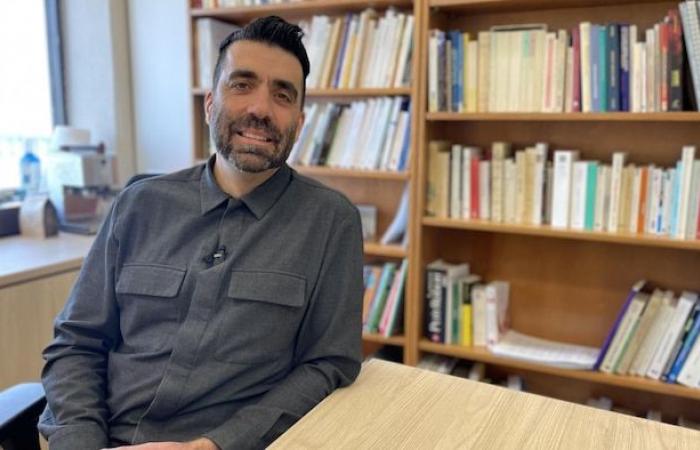An “essential” tool used by school service centers (CSS), produced by the Ministry of Education (MEQ), did not allow them to prepare for the increase in students in primary education establishments and secondary. In the last two years, the discrepancies between these forecasts and reality exceed 1,200 students in the Quebec region.
- obtained by request for access to information the workforce forecasts
for the CSS and school boards in the province.
These documents produced annually in March by the MEQ gives its forecasts for the number of students for the next 15 years at the preschool (kindergarten 4 and 5 year olds), primary and secondary levels.
Start of widget. Skip the widget?End of widget. Return to start of widget?
Although he considers that the ministry’s data is reliable
the gap between forecasts and the higher number of students in schools is not not without consequences
explains Dominique Robert, deputy president and CEO of the Federation of School Service Centers of Quebec (FCSSQ).
In environments where there is a gap between the forecast and the actual number, the room for maneuver is very limited […] when there is a gap or there is a space problem in an environment, although they may, on the surface, seem small, the consequences for students, staff or parents are great.
He cites, for example, the development of temporary or modular premises, or the movement of students to a neighboring school.
Open in full screen mode
Despite the gaps between forecasts and reality, Dominique Robert considers the Ministry of Education’s forecasts “reliable”.
Photo : - / Marika Wheeler
Hundreds more students than expected
According to the data, in the three CSSs of Quebec City, there were approximately 5,150 more students in the 2023-2024 school year than what the ministry predicted in 2019 for this period. Taking into account the annual revision of forecasts, this gap is reduced to approximately 1230 students.
Start of widget. Skip the widget?End of widget. Return to start of widget?
Start of widget. Skip the widget?End of widget. Return to start of widget?
Start of widget. Skip the widget?End of widget. Return to start of widget?
The ministry’s data is essential
for planning, explains Mr. Robert, without commenting on the case of a CSS especially. They rely on it, for example, to make requests for the expansion or construction of schools, as these are processes that often take place over several years.
This is the preliminary stage which is crucial to determine the space needs and all the logistics necessary to welcome students for the start of the school year.
summarizes Dominique Robert.
THE CSS have the obligation to welcome all the students registered in their territory, he also recalls.
More violence in schools
Overcrowding in schools has a significant impact on staff and management, indicates research carried out by researcher and full professor at Laval University, Simon Viviers.
The school climate is tense
and already works in a mode a little saturated
consider those who are interested in mental health at work. Psychological distress among staff, linked to the workload in such an environment, was identified during his research.
When there is overcrowding, there are a lot of students living in a small space, this generates tension, it increases irritation, it increases stress, and there it becomes fertile ground for the development of violent behavior.
A forecast error is understandable, he admits. It’s not an exact science
et maybe it was difficult to understand the increase in immigration in the Quebec region
. But he would like to see school networks be offered more leeway in their management.
We must stop operating in saturated mode!
he pleads.
He denounces certain new methods of public management. We will want to rationalize at all levels which means that we never have space to deal with unforeseen events, for example an error in workforce planning.
argues Simon Viviers.
Open in full screen mode
Simon Viviers is interested in mental health in the workplace, particularly in education.
Photo : - / Marika Wheeler
He considers that the backgrounds
are doing the best they can given the situation. He sees no short-term solutions other than investing in resources to ease the psychosocial climate in schools.
Then the medium and long term response includes building more schools, he says.
In the latest forecast of MEQQuebec City will have almost 17,000 more students in the 2033-2034 school year compared to that of 2023-2024.
THE CSS de la Capitale and des Découvreurs declined our interview request. THE MEQ and the CSS des Premières-Seigneuries did not respond to our questions in time for publication.







